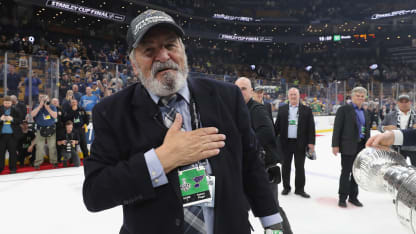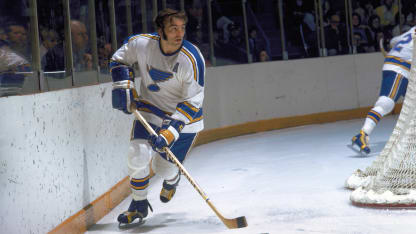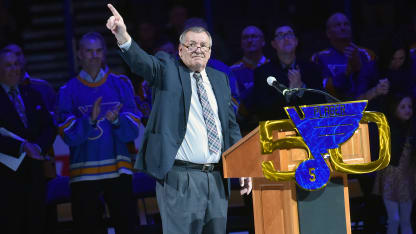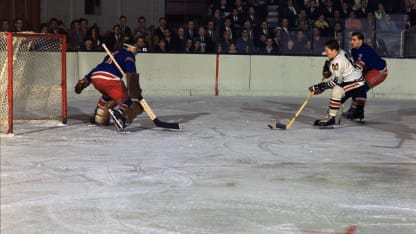Like Barclay, Bob served in many capacities with the Blues after his playing career. He was named the team's 16th coach May 1, 1992, coaching the team for 11 games (4-6 with one tie) to start the 1992-93 season. He coached Peoria in the International Hockey League in 1990-91, winning the Turner Cup championship. Plager earned coach of the year honors.
"He was a great ambassador for the St. Louis Blues. Obviously been there from the beginning," Blues coach Craig Berube said Thursday. "I knew Bobby pretty well, always enjoyed seeing him and running into him, talking and some stories. He was a great story teller and great guy to be around, a lot of fun for sure. Loved the St. Louis Blues more than anybody."
There were few areas of the Blues organization that didn't bear his fingerprints. Plager was St. Louis' director of professional scouting, vice president and director of player development, a special assistant to the general manager, assistant to the director of hockey operations, coach for the Blues' Central Hockey League Salt Lake City affiliate, and was a scout handling special assignments.
"Few men in the history of our game were more closely connected to a city and a franchise than Bob Plager was to St. Louis and the Blues," NHL Commissioner Gary Bettman said. "... Respected by fellow players for his toughness, he was beloved by teammates for his welcoming personality and forged a fierce bond with St. Louis fans that would last his entire life. The National Hockey League family mourns the tragic passing of a true St. Louis original and send our condolences to his daughter, Melissa, his son, Bobby, his two grandchildren and his countless fans in St. Louis and throughout hockey."
Born March 11, 1943 in Kirkland Lake, Ontario, Plager arrived with the Blues for their inaugural season with thunder in his hips and a chip on his shoulder, his ruggedness established by his having set the major-junior Ontario Hockey Association record for penalty minutes, breaking the standard previously held by Barclay.
Plager, a defenseman, had played 29 games for the New York Rangers before 1967 expansion, and was traded to the Blues by the Rangers on June 6, 1967 with Gary Sabourin, Tim Ecclestone and Gord Kannegiesser for defenseman Rod Seiling.







